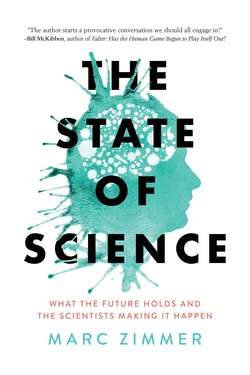Читать книгу The State of Science - Marc Zimmer - Страница 8
На сайте Литреса книга снята с продажи.
Science, Economy, and Equity
ОглавлениеScience and its resultant technologies are also responsible for the well-being of our economies. Our financial systems rely on growth. To be successful in today’s global market, the economies of our countries are expected to grow at increasing rates. Games such as The Settlers of Catan, Civilization, Risk, Monopoly, and Minecraft, in which one has to expand one’s possessions to win the game, are microcosms of this need. There isn’t much room today to grow our agriculture or industries, and fortunately the days of colonization are over, so finding new science-based technologies is one of the few ways we can increase our economies. This places pressure on scientists to produce, which can result in corners being cut and science moving too fast for the global community to establish ethical and safe boundaries.
Scientific discoveries have not only enabled the expansion of the human population but are also the key to expanding economies in the postindustrial world. To keep the financial systems growing, such findings need to come faster and faster. At the same time, scientific discoveries will have to curtail the environmental and ecological degradation associated with growth. These expectations are unrealistic and a sign of a broken system; science cannot deliver all this. Expecting science to rescue us from the consequences of our overconsumption is just as dangerous as failing to acknowledge its great potential. In Falter: Has the Human Game Begun to Play Itself Out?, Bill McKibben argues that we have to move from a growth economy to a mature economy.[7] To illustrate his thinking, he uses a human analogy: as teens we are expected to grow and would be taken to the doctor if we didn’t; however, as mature adults we have reached stasis, and our families and doctors would be very concerned if we continued to get taller. McKibben argues, and I agree, that our economies are now mature.
At best science may be a bandage on an unsustainable, growth-based economy, but it won’t be the cure. Our economies and societies are complex ecosystems constrained by thermodynamics, and from thermodynamics we know that all this growth requires energy and generates waste (entropy). According to Philip Ball, former Nature editor, “creating a true science of sustainability is arguably the most important objective for the coming century; without it, not an awful lot else matters. There is nothing inevitable about our presence in the universe.”[8]
Throughout the 20th century, children enjoyed better lives than their parents. However, this pattern cannot continue forever; something has to give: the economic system built on growth, the environment, our energy consumption, and/or our eating habits. There is no denying that an increase in scientific knowledge will increase the quality and length of our lives, but it will also bring increasing environmental and ethical problems. It will widen the gap between the haves and have-nots, both within the United States and between nation-states. Developments in science won’t just improve transportation (cars, trains), communication (phones, internet), and consumption (fertilizers), as they did in previous generations; instead new advances have the potential to improve our bodies (CRISPR; chapter 9) and minds (optogenetics; chapter 8).
In Homo Deus: A Brief History of Tomorrow, Yuval Harari argues that existing inequities will be compounded by the fact that in the past, medicine’s main purpose was to heal the sick, whereas in the future medicine will increasingly be designed to enhance the healthy. Treating the sick is an egalitarian process, while upgrading the healthy will be a luxury available only to the elite. Medicine will increase existing inequities by giving an edge to the rich. “People want superior memories, above-average intelligence and first-class sexual abilities. If some form of upgrade becomes so cheap and common that everyone enjoys it, it will simply be considered the new baseline, which the next generation of treatments will strive to surpass.”[9] For the first time, the rich will have not only significant material benefits but also genetic improvements. As in the past, they will have better lives than the poor, but thanks to new techniques such as CRISPR, they may actually be better, too. In the extreme case, this could ultimately lead to a new species: Homo superior. Today the richest 100 people have more assets than the poorest 4 billion. In the future this financial inequality may lead to biological inequalities.[10]
